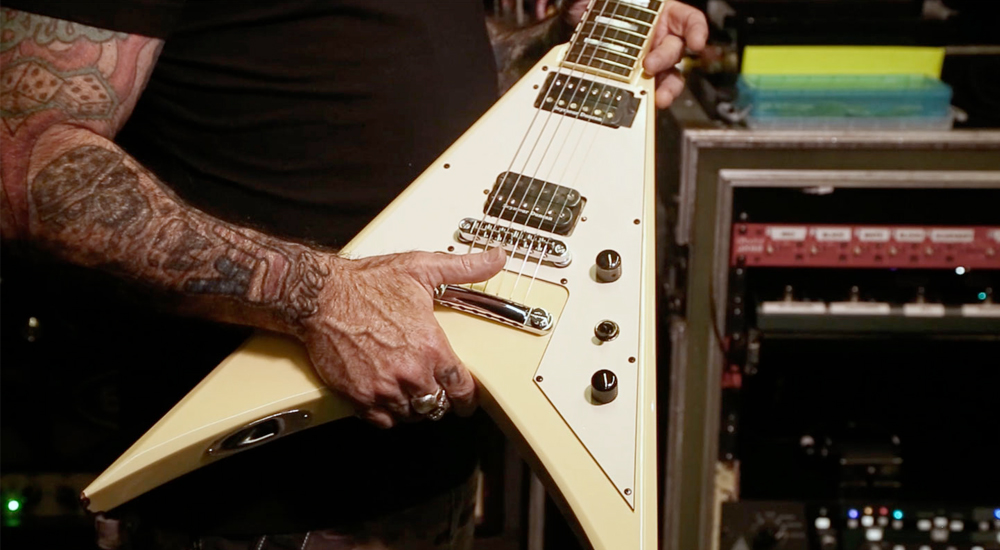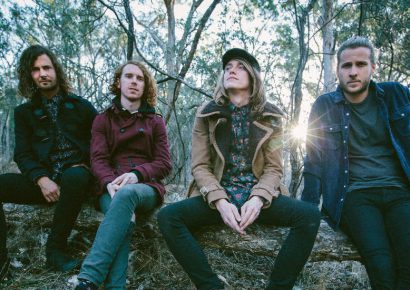“It seems like a fairly simple question to answer but it seems like the answer has many levels to it,” says Benante. “I feel like we’ve come from a strange time in the band’s career. I think we’ve had a second chance to actually look on the outside in, and I think it gave us a perspective.
“Just speaking for myself, I pushed myself to the limit of, ‘I don’t want to make records anymore that are just okay.’ I want to make a record that from start to finish is the best music we can possibly make.”
It’s important to Benante that Anthrax continue with new music that doesn’t exist just for the sake of it. It’s one thing to maintain a legacy, but another altogether to build upon it.
“It’s not just resting on your past, your history,” he says. “Yes, at the end of the day, a majority of people who are coming to see you are coming to see you because of your past, which is fine, of course it is. I can’t ignore the legacy, but it’s also important for us to be up there playing something fresh, interesting.”
Benante believes it’s a positive thing that younger fans come to the band’s meet and greets clutching the newer materials. “I feel nowadays kids are so torn between playing shit on their phone that there are so many more outlets now… When we were kids, it was a totally different playing field.”
There are two sides to how Benante feels about whether Anthrax had it easier in their early days than kids in music today. On one hand, the drummer admits that yes, it was easier, but it’s also harder, reflecting on the camaraderie of getting in a van and hitting the road with your friends, making music and bonding. “I think a lot of bands nowadays just don’t have that experience anymore, and I think it’s important for the longevity of the band that you do get in a bus and you live with each other and bond as a band.
“We found out early on when we did that who was going to last in the band and who wasn’t. I don’t know if people are making music because they want to make music. I think they’re doing it because they want to be famous.”
It’s a sign of the modern era, one in which there’s been such a change in the social makeup of the world today that unfortunately, money rules all and technology dominates. As much as people love the internet these days and praise its place in music, Benante feels it has damaged basic emotions. He may laugh at the severity of the word “damaged”, but Benante’s sentiment rings true. “It’s damaged people, it’s damaged businesses, it’s damaged full-on, globally, so much,” he says.
“I think it’s a terrible thing that while something could have been great, it really ended up being more of a negative, I think. People are going to read this and be like, ‘What the fuck is he talking about? The internet has helped so much.’ I’m saying with all the good it’s done, it’s also done a lot of bad.”
At the suggestion that the onslaught of the internet might be a contributing factor as to why Anthrax’s good friends Slayer, another of the Big Four, are calling it a day, Benante pauses before laughing.
“I guess they’ve had enough,” he says. “I haven’t thought about stopping. I think at some point we’ll have to call it a day, but Slayer’s not calling it a day because of any health issue or lack of ticket sales. I just think someone has reached a point where they don’t want to do it anymore and a decision was made.”
Anthrax seem to be operating in quite the opposite mindset to Slayer – it’s like an unquenchable thirst for Benante and co. to keep going, no matter the odds. “I would say I still enjoy this life that I’ve been so lucky to have,” says Benante. “Creating music is my favourite thing bar none. That’s when I feel most alive.”
Anthrax will perform at Download Festival in March as well as performances in Adelaide and Brisbane alongside Slayer and Behemoth.

